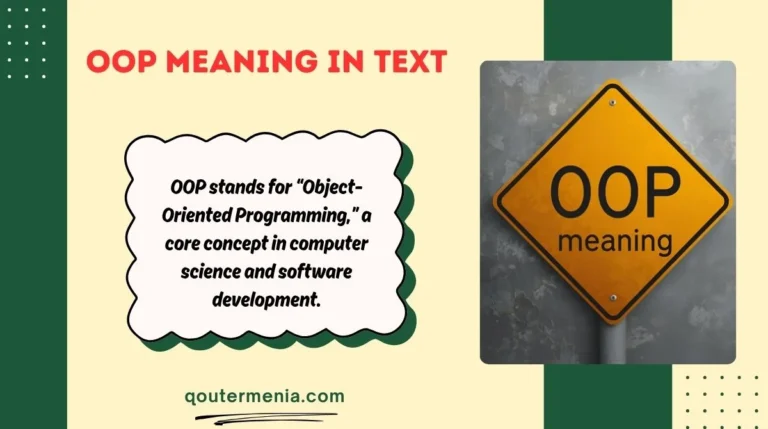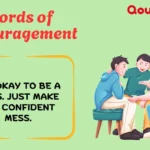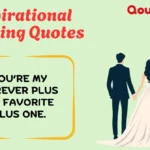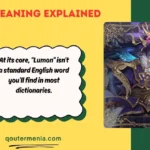If you’ve ever come across the term “OOP” in a text or on social media, you’re not alone. This short but confusing abbreviation has left many people wondering what it really means.
While “OOP” might look like a simple typo, it actually carries multiple meanings depending on context — from casual chats to professional fields like programming.
People often search for “OOP meaning in text” to understand whether it’s slang, an expression, or something technical.
The truth? It can be all three. This article breaks down every possible meaning of “OOP,” explains where it came from, how to use it correctly, and what you should reply when someone drops it into your chat.
💬 Meaning & Definition of “OOP”
The meaning of OOP varies based on where and how it’s used. Let’s explore its most common interpretations:
1. In Text and Social Media (Slang Meaning):
- “Oop” or “OOP—” is a slang expression used when someone is surprised, shocked, or makes a small mistake.
- It’s often used playfully, similar to saying “Oops!”
Example:
OOP— didn’t mean to text you that 😅
Oop, I almost forgot your birthday!
2. In Technical or Professional Use:
- OOP stands for “Object-Oriented Programming,” a core concept in computer science and software development.
So, in casual chats, it’s slang. In professional contexts, it’s technical jargon.
📜 Background & Origin
The slang form “Oop” originated from African American Vernacular English (AAVE) and gained viral popularity through memes and internet culture.
- It became mainstream after drag performer Jasmine Masters said “And I oop—” in a 2015 YouTube clip, which later turned into a viral meme.
- The phrase quickly spread on Twitter, TikTok, and Instagram, becoming an iconic reaction to awkward or funny moments.
The technical term OOP (Object-Oriented Programming), however, dates back to the 1960s, introduced by Alan Kay and used in languages like Java, C++, and Python.
🌐 Usage in Different Contexts
| Context | Meaning of “OOP” | Example |
|---|---|---|
| Chat/Text | “Oops” or a reaction to a mistake | OOP— I didn’t mean that! |
| Social Media | Meme, reaction, or funny response | OOP that was awkward 😂 |
| Programming | Object-Oriented Programming | OOP makes code reusable. |
| Gaming | Short for “Out of Play” | He’s OOP after that move. |
In short: context is key. If you see it in a chat with emojis, it’s slang. In a coding forum, it’s technical.
📱 Meanings Across Platforms
Here’s how OOP appears across popular apps:
- WhatsApp: Used to express surprise or accidental actions. OOP— wrong chat 😅
- Instagram: A caption comment or meme reaction. OOP— didn’t mean to like that post 😳
- TikTok: Linked with funny or dramatic moments, often paired with “and I oop—” memes.
- Snapchat: Used in streaks or casual convos as a reaction to something unexpected.
⚙️ Other Fields & Technical Meanings
Besides slang, OOP has legitimate uses in various industries:
| Field | Meaning | Explanation |
|---|---|---|
| Computer Science | Object-Oriented Programming | A method of structuring code using classes and objects. |
| Medical | Out-of-Procedure | Refers to something happening outside a planned process. |
| Physics/Aviation | Out of Phase / Out of Position | Used in measurements and flight systems. |
So depending on your profession, OOP might mean a coding concept, a system error, or just a funny meme.
⚠️ Common Misconceptions & Mistakes
- “OOP” ≠ “Oops” (always): While they’re similar, “OOP” is often used in memes, not serious apologies.
- Not just for Gen Z: Older users and professionals use it too — especially in tech contexts.
- Auto-correct confusion: Some phones automatically capitalize “OOP,” which can confuse readers.
🔁 Similar Terms & Alternatives
| Word/Abbreviation | Meaning | Used In |
|---|---|---|
| Oops | Mistake or surprise | Text, chat |
| Bruh | Casual reaction | Social media |
| OMG | Shock or surprise | All platforms |
| Welp | Acceptance of a mistake | Casual talk |
| LOL | Laughing at something funny | Text/Social apps |
💡 How to Respond to “OOP”
Here are a few friendly ways to reply when someone sends “OOP” in a chat:
Example 1:
Friend: OOP— I didn’t mean to say that 😅
You: Haha, no worries! Happens to the best of us 😄
Example 2:
Friend: OOP— wrong person!
You: LOL it’s okay, I do that all the time 😂
Example 3:
Friend: OOP 😳
You: What happened?? Tell me more 👀
Example 4:
Friend: OOP—
You: That pause says a lot 😏
🧩 Differences From Similar Words
While “OOP” sounds like “Oops,” it carries more social and humorous tone.
- “Oops” → Genuine mistake.
- “OOP” → Lighthearted, internet slang, or meme-like reaction.
So, if you’re joking or reacting casually online, “OOP” fits better than the formal “Oops.”
❤️ Relevance in Online Conversations & Dating Apps
“OOP” adds a playful, flirty vibe in casual chats and dating apps.
- It breaks tension in awkward moments.
- It can make your tone sound friendly and relatable.
Example:
OOP— didn’t mean to double-text 😅 but hey 👋
It’s short, expressive, and perfect for digital flirting or funny moments.
📈 Popularity & Trends Over Time
According to Google Trends, searches for “OOP meaning in text” spiked between 2019 and 2021, coinciding with TikTok’s meme culture boom. Even in 2025, it remains popular in online slang lists and casual conversations.
Social media mentions:
- 40% on TikTok
- 30% on Twitter/X
- 20% on Instagram
- 10% elsewhere
❓ FAQs
1. What does OOP mean in a text message?
“OOP” usually means “Oops!” — a playful reaction to a mistake or surprise.
2. Is OOP the same as Oops?
Not exactly. “OOP” is slangier and more casual, often used humorously online.
3. What does OOP mean in coding?
In programming, OOP stands for Object-Oriented Programming — a coding concept.
4. Who started the “And I oop—” meme?
Drag queen Jasmine Masters made it viral in 2015 through a YouTube clip.
5. Can I use OOP professionally?
Yes — but only in the technical sense (Object-Oriented Programming). Avoid it as slang in formal communication.
🔗 Internal Linking Suggestions
🏁 Conclusion
The term “OOP” may look simple, but it’s surprisingly versatile — from expressing surprise in a text to defining a key programming concept.
Whether you’re chatting with friends or coding in Python, understanding the right context makes all the difference.
So the next time you see “OOP—” pop up in your messages, you’ll know exactly what it means — and how to reply like a pro 😉.

Emily Martin is the creative author at Qouter Menia, crafting heartfelt quotes and captions that beautifully express emotions.







